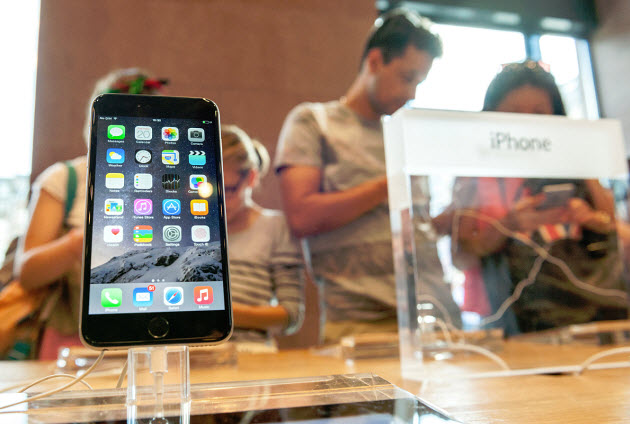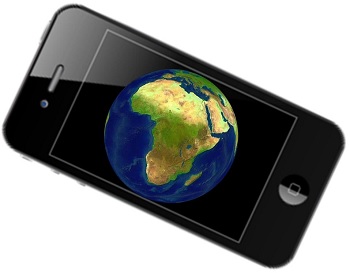“Programmatic” ad purchases are being accepted by the tech company and its partners.
Apple and a slew of partner companies have now made the official announcement that the iAd network has begun accepting “programmatic” mobile marketing ad purchases, in a move that has thrown Apple in direct competition with a range of other smartphone and tablet based advertising services.
The initial intention of Apple to begin its automated iAds program had been leaked a few days ahead of the official launch.
This leak occurred when Rubicon Project, one of the Apple partners, accidentally made an early publication of its press release. However, the official announcement of the iAds mobile marketing advertising came at the end of last week, on Friday, with the official debut of its new automated system. There are a number of other partner companies other than Rubicon Project. They include MediaMath, The Trade Desk, and AdRoll tech companies.
This mobile marketing system will involve the integration of a number of platforms with iAd Workbench tools.
 The tools make it possible to reach consumers in a targeted, cross-device mobile advertising campaign. The focus is specifically for iPhone and iPad users, which are known to be the shoppers that make the largest purchases online over their devices.
The tools make it possible to reach consumers in a targeted, cross-device mobile advertising campaign. The focus is specifically for iPhone and iPad users, which are known to be the shoppers that make the largest purchases online over their devices.
This represents a considerable change in the mobile advertising inventory from Apple. It makes it possible for iAds to be purchased and sold within an open marketplace, which will simplify the process for marketers to be able to purchase audiences. Through the use of programmatic buying, it becomes possible for marketers to be able to use auctions to bid on the placements of their ads. This process has already shown to be popular over other ad networks.
When AdRoll made its announcement as a partner in iAds, it explained that customers will be capable of conducting their campaigns by way of “Apple’s proprietary, privacy minded consumer data sets gleaned through iTunes.” Advertisers will have the tools that they need to build a campaign, to update it, to obtain analytics, and to manage bids throughout iAd by way of the partner third party platforms.
Denny |
November 21, 2014
A new survey has revealed that these device users are becoming annoyed with the advertising they are receiving.
The research firm, Ifop, from France, has released the results of a study that they conducted in South Africa and Algeria, which revealed that consumers in those countries are not appreciating the types of mobile marketing that they are receiving from brands and companies.
They discovered that 80 percent of consumers in those countries were annoyed by unsolicited messages they received.
This reveals that the mobile marketing strategies being used by companies and brands targeting smartphone using consumers in Africa may not be nearly as effective as is hoped. Instead of engaging consumers, they are managing to annoy them, instead. Moreover, the research also showed that the same percentage of consumers could be won back by those brands and companies if they change their efforts and implement practices that will enhance the consumer engagement that is promoted by their ads.
This mobile marketing study was conducted by Ifop on behalf of Gemalto using face to face interviews.
 The mobile advertising research involved the participation of adults over the age of 18 years. There were 800 respondents in Nigeria and South Africa. The purpose of the study was to better determine the opinions of consumers with regards to the types of marketing to which they have been exposed over their smartphones. It sought to pinpoint and examine the negative perceptions that had been formed about this type of advertising in those two parts of Africa. It was conducted back in July 2014.
The mobile advertising research involved the participation of adults over the age of 18 years. There were 800 respondents in Nigeria and South Africa. The purpose of the study was to better determine the opinions of consumers with regards to the types of marketing to which they have been exposed over their smartphones. It sought to pinpoint and examine the negative perceptions that had been formed about this type of advertising in those two parts of Africa. It was conducted back in July 2014.
The study showed that Nigerian and South African consumers had similar desires when it comes to mobile ads and promotions. Consumers in both of those nations have shown that they would prefer to have some control over the types and natures of the ads that they receive over their smartphones and tablets.
It showed that 83 percent of the participants in the study believe that mobile marketing should be an opt-in basis, only. Moreover, 90 percent would want to be able to identify the company or brand from which they receive these messages and communications.
 The tools make it possible to reach consumers in a targeted, cross-device mobile advertising campaign. The focus is specifically for iPhone and iPad users, which are known to be the shoppers that make the largest purchases online over their devices.
The tools make it possible to reach consumers in a targeted, cross-device mobile advertising campaign. The focus is specifically for iPhone and iPad users, which are known to be the shoppers that make the largest purchases online over their devices.
 The mobile advertising research involved the participation of adults over the age of 18 years. There were 800 respondents in Nigeria and South Africa. The purpose of the study was to better determine the opinions of consumers with regards to the types of marketing to which they have been exposed over their smartphones. It sought to pinpoint and examine the negative perceptions that had been formed about this type of advertising in those two parts of Africa. It was conducted back in July 2014.
The mobile advertising research involved the participation of adults over the age of 18 years. There were 800 respondents in Nigeria and South Africa. The purpose of the study was to better determine the opinions of consumers with regards to the types of marketing to which they have been exposed over their smartphones. It sought to pinpoint and examine the negative perceptions that had been formed about this type of advertising in those two parts of Africa. It was conducted back in July 2014.